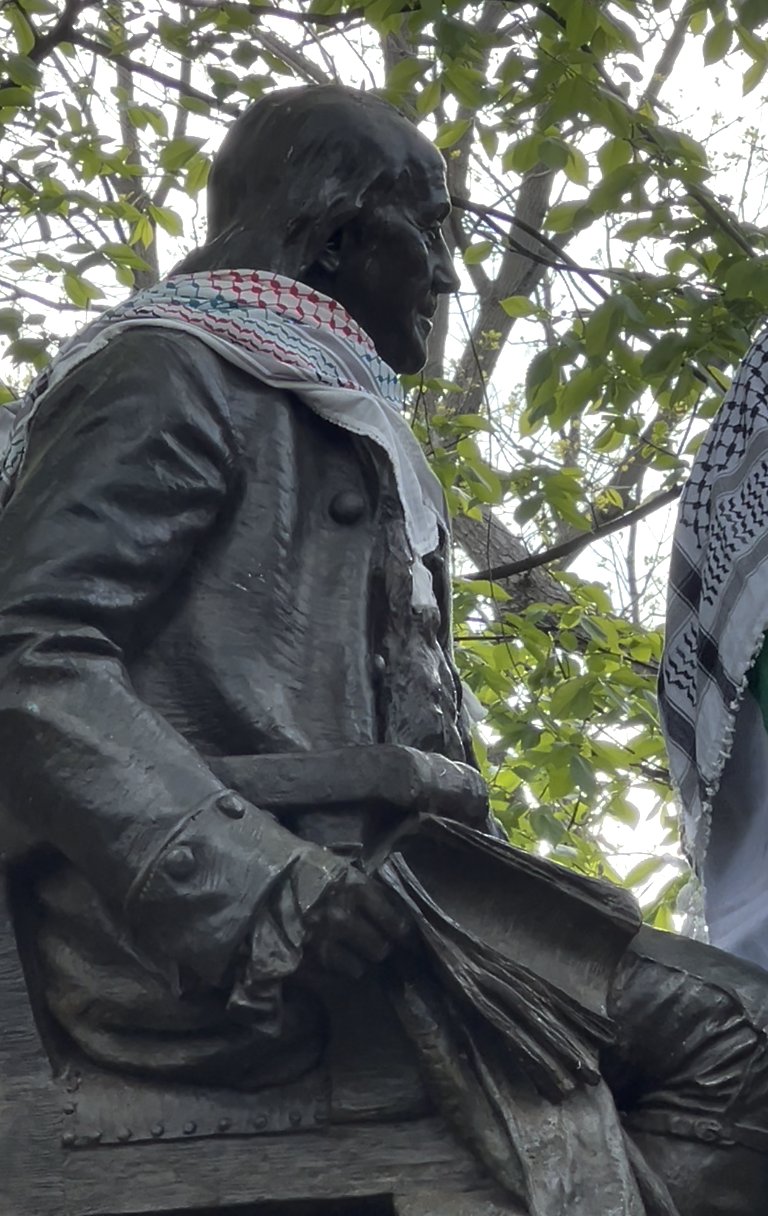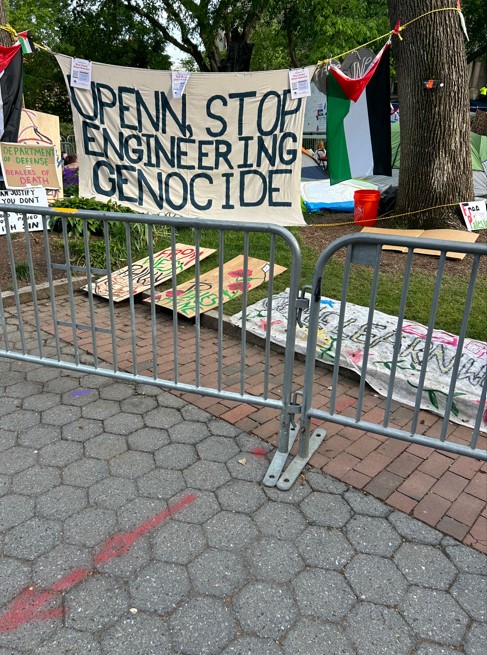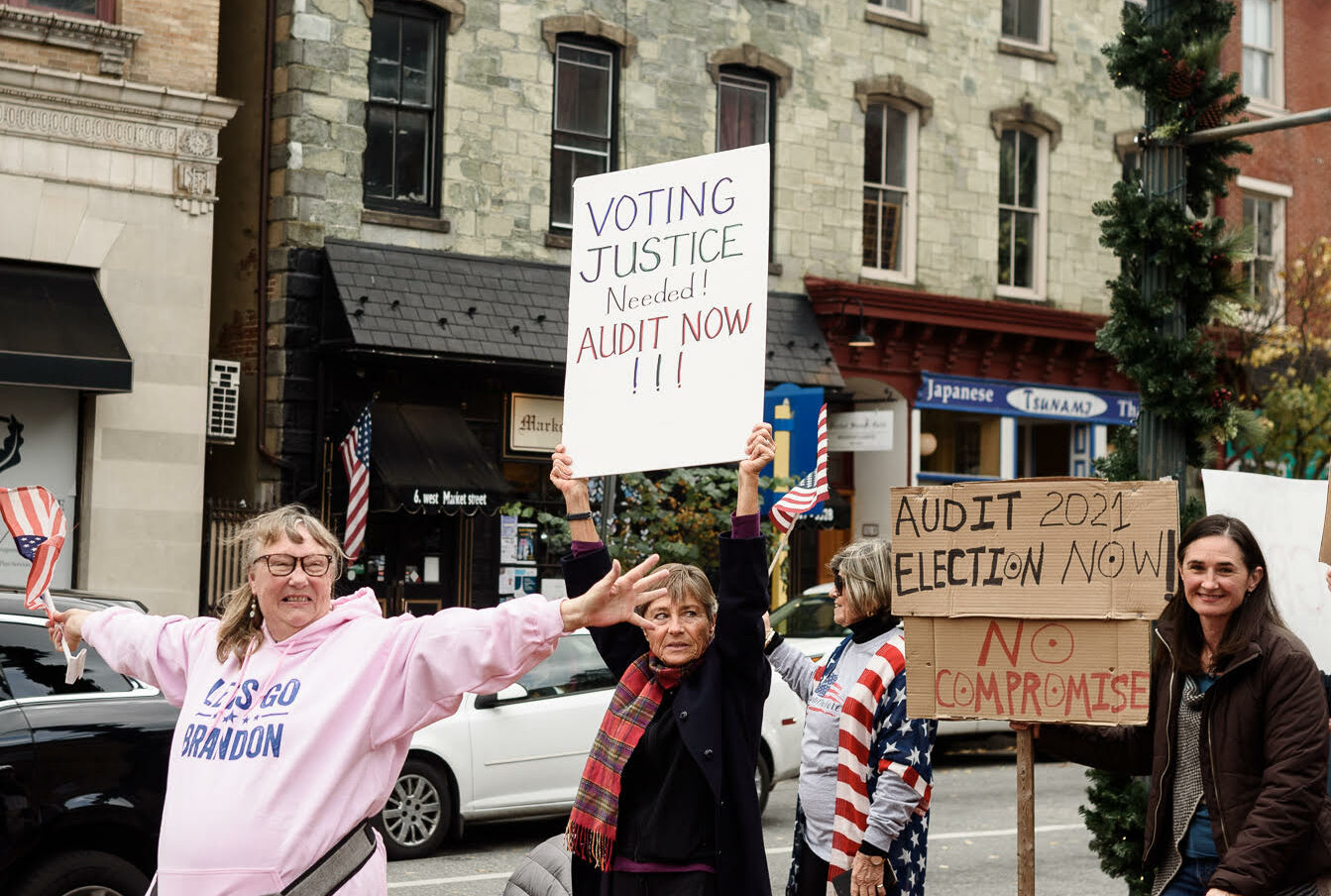DelVal Jewish Parents Weigh Protests When Deciding College Choices

Which area colleges and universities are less likely to be disrupted by anti-Israel protesters? Some Delaware Valley Jewish parents are considering the possibility of protests when deciding which college would be best for their kids.
Jim Yannopoulos, PsyD, a certified educational planner with Right College for Me in Bryn Mawr, said parents and students concerned about protests should avoid the University of Pennsylvania, Haverford College, and Swarthmore College.
“Jewish students at Haverford and Penn have experienced particularly harsh antisemitism, and there has been disruptive conduct at all three colleges,” said Yannopoulos. “What do these colleges have in common? A critical mass of spoiled, entitled children who have apparently never heard the word ‘no’ from their parents or anyone else and have never suffered consequences for their ignorance and immature actions,” he said. “Even on these campuses, the majority of students are reasonable and just want to get on with their studies and lives. But this vocal minority makes that nearly impossible.”
Yannopoulos added, “While there is some activity on almost every campus, other colleges in the Philadelphia area have basically been able to continue business as usual and feel relatively safe.”
Brett Harris, a Lower Merion father, said his oldest child is a sophomore, but they’ve already discussed this topic.
“We have talked about it, and I think ‘elite’ schools are going to be off the list and we will mostly be looking at southern schools outside of a few in-state schools,” said Harris.
Jamie Cohen Walker, a Chalfont mother, said her daughter Devyn, 17, who is about to graduate from Central Bucks South High School, will be going to a college in Florida.
“I feel safer sending her to a state where I know the governor is very adamant about not letting these pro-Palestinian encampments start,” said Walker. “While there were other reasons, like warmer weather, but her safety became the main concern. Because of all the craziness that governors in these Democratic states are letting happen, I did not want my daughter subjected to it.”
“Gov. Ron DeSantis (R-Fla.) was not going to stand for it,” said Walker. “I feel like DeSantis is a really good leader when it comes to education, and Florida is leading the way. They got rid of CRT [critical race theory], which, in my opinion, leads to antisemitism. CRT teaches that Israel and Jewish people are the oppressors and that there’s an oppressed and an oppressor.”
“Ron DeSantis did something [about the encampments] while our governor waited and waited,” said Walker. “And let Jewish kids be harassed. I don’t want my kids to be exposed to that.”
Rav Shai Cherry, the rabbi at Adath Jeshurun in Elkins Park, said, “My Rina, 19, was just accepted by UC Santa Cruz. She got into there, Temple, and Brandeis. She chose the one where there were no protests [UC Santa Cruz]. She’s in Israel, by the way, on a kibbutz for five months.”
“I went over some pros and cons with her,” said Cherry. “I don’t want to cede an inch to antizionists or antisemites. Turns out UCSC has an excellent physics program, and that’s what she’ll study. She’ll be an activist who can knowledgeably respond to antizionist tropes.”
Eyal Yakoby, a Penn senior who has testified before Congress on antisemitism on campus and is suing the university, said, “I am disappointed in the school and hope that they can find their moral compass. There is no gray lines. Violence and harassment have no business being at a university.”
Yannopoulos said, “Nationally, the worst campuses have been Columbia, Harvard, Oberlin, Colgate, Georgetown, and Stanford. These are terrible places for real human beings capable of thinking independently. Columbia was horrible even before Oct. 7. For a number of other reasons not related to the climate and culture, I do not recommend Columbia to any student.
“The best elite, intellectual academic institution for students who value reasonable exchanges and discussion with true free speech is the University of Chicago,” Yannopoulos said. “Even there, there have been encampments and disruptions, but they have been dealt with in a way that emphasizes every student’s right to obtain the educational opportunities they and their parents paid for.”
Please follow DVJournal on social media: Twitter@DVJournal or Facebook.com/DelawareValleyJournal




